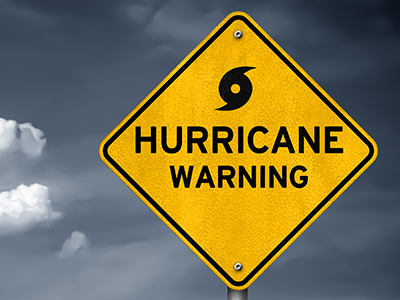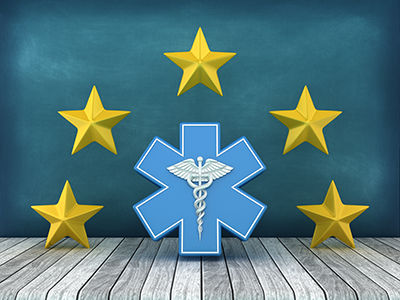Most families know when to call an ambulance or bring their child to the emergency room when they seem physically ill. But they may have a hard time recognizing if their child is going through a mental health or psychiatric emergency. A psychiatric emergency is a dangerous or life-threatening situation in which a child needs immediate attention.
For families, it is often hard to distinguish psychiatric emergency from psychiatric urgency. Psychiatric emergencies are life-threatening events that require immediate medical attention, whereas psychiatric urgencies are non-life threatening events that require long-term consistent outpatient follow-up. The following summaries can help you take the appropriate actions to help your child if they are experiencing a mental health emergency.
Psychiatric emergencies
If your child has overdosed on medication or drugs, swallowed something dangerous, or attempted suicide, this is an emergency. Immediately call 911 or your local emergency number.
Reasons to bring your child for an emergency mental health evaluation include:
Risk of harm to self, such as:
- Saying in person or online that they want to kill themselves
- Searching online about how to kill themselves
- Taking steps to kill themselves like stockpiling pills, making a noose, or getting a gun or other weapons
- Writing a suicide note
- Giving away favorite belongings or making a will
- Cutting or hurting themselves in order to die or not talking about why
Risk of harm to others, such as:
- Saying in person or online that they plan to kill a person or large groups of people
- Becoming more violent towards others in a way that immediately threatens safety
- Starting fires, destroying property, or harming animals
- Threatening a person with a weapon
Changes in behavior or thinking, such as:
- Acting strangely or not making sense
- Losing touch with reality
- Seeing or hearing things that are not there
- Becoming paranoid
In these cases, an emergency evaluation may be required. Contact your child’s doctor or mental health provider to find out the best way to get help. If your child is in immediate danger, call 911 or your local emergency number, or head straight to the nearest emergency room. If you’re not sure you can transport your child safely, call 911. When you arrive in the emergency department both medical and psychiatric health care providers will evaluate your child. They will work together to determine if your child can be safely discharged home with outpatient resources or if your child needs to be admitted for inpatient psychiatric care.
Psychiatric urgencies
If you are reading this because your child has been suspended from school due to behavioral issues, this is a psychiatric urgency. As a parent or guardian in this situation, the best thing to do is to call your child’s pediatrician and/or call the number on the back of your insurance card to find out what psychiatric resources are available to your child. If you do not have insurance, visit HealthCare.gov to see if you qualify for special enrollment or apply for Medicaid anytime.
When your child is experiencing behavior issues it is extremely important to help determine why it is happening. In the same way that abdominal pain or fever can be caused by many things, behavioral issues can be due to many different underlying problems. Behavioral issues can stem from diseases such as ADHD, anxiety, learning disorders, PTSD, bullying, chronic medical problems, and many more. The underlying issue is not always apparent to parents or teachers, which highlights the importance of establishing long-term care with a provider who can work with the child, parent and school to determine the root cause of the behavior issues and help them work through it.
Your pediatrician or mental health provider can handle most non-life threatening issues during regular business hours. These include:
- Non-emergent full diagnostic evaluations for psychiatric diseases that are causing children to skip school
- Chronic or longstanding problems that are not dangerous or life threatening, such as anxiety, trouble sleeping, defiant behaviors, tantrums, learning disorders, PTSD, anger management, and many others
- Referral to a mental health provider in the community
- Routine medication changes or non-urgent medication refills
If you would like to schedule an outpatient appointment with the psychiatric and behavioral science team at Children’s National, please call 202-476-5980. If you live in DC and want information about psychiatric resources available to your child, please call 1-888-793-4357.
 https://riseandshine.childrensnational.org/wp-content/uploads/2025/05/child-having-tantrum-feature.jpg
300
400
webteam
https://riseandshine.childrensnational.org/wp-content/uploads/2017/11/childrens_riseandshine_logo.jpg
webteam2025-05-07 15:54:412025-05-07 16:19:29Helping autistic children manage big feelings
https://riseandshine.childrensnational.org/wp-content/uploads/2025/05/child-having-tantrum-feature.jpg
300
400
webteam
https://riseandshine.childrensnational.org/wp-content/uploads/2017/11/childrens_riseandshine_logo.jpg
webteam2025-05-07 15:54:412025-05-07 16:19:29Helping autistic children manage big feelings


 Marci Fornari was an emergency medicine fellow at Children's National Hospital.
Marci Fornari was an emergency medicine fellow at Children's National Hospital.


















Leave a Comment
Want to join the discussion?Feel free to contribute!